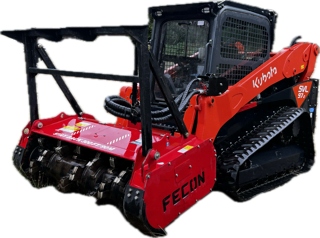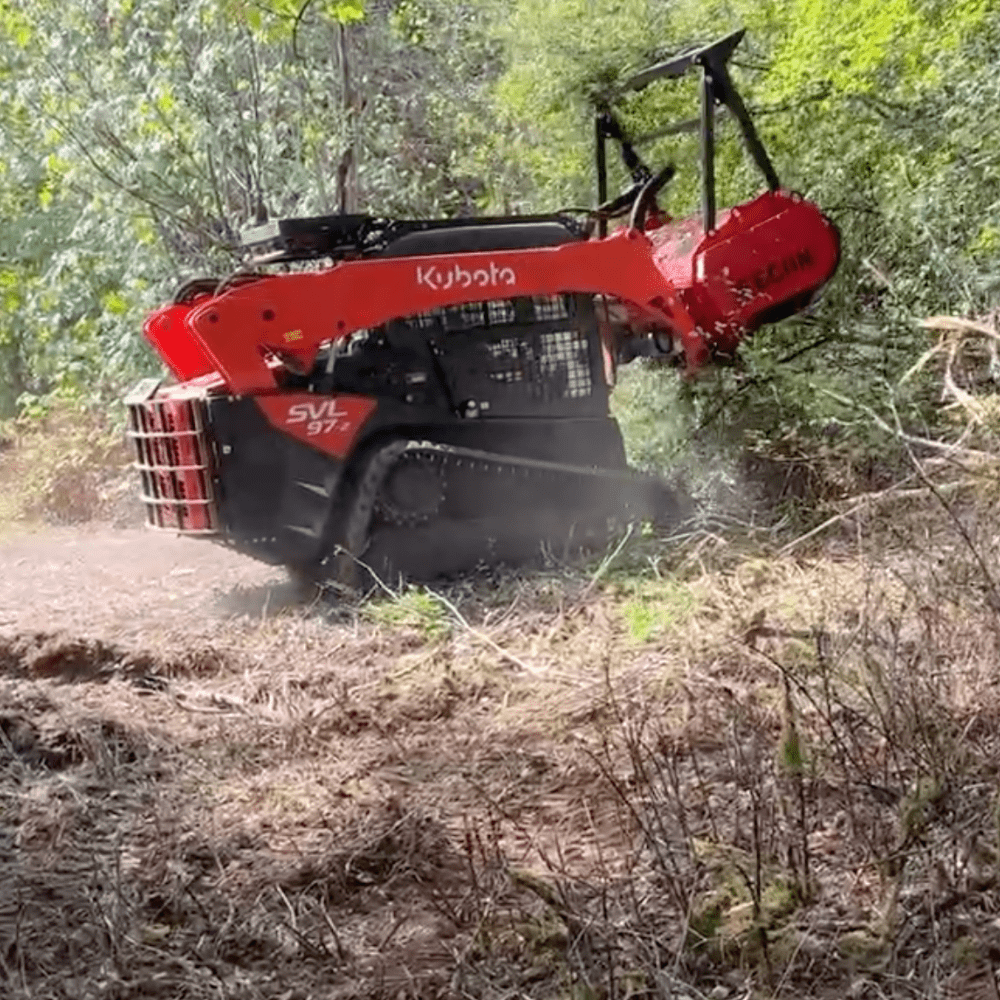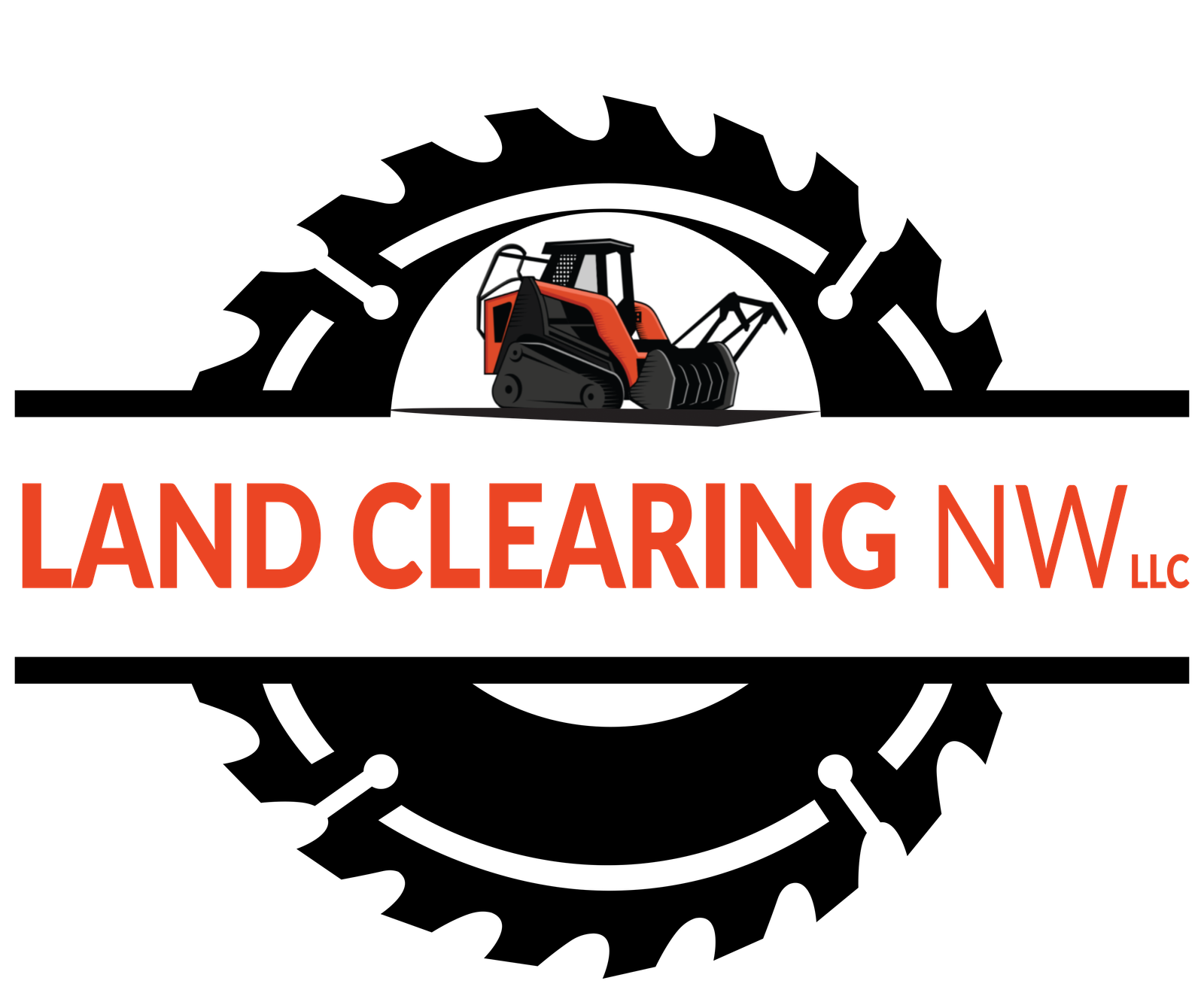Land Clearing in Brush Prairie WA

Get a free estimate

Services
Land Clearing in Brush Prairie
Land clearing is a crucial process that involves removing trees, stumps, brush, stones, and other obstacles from an area to prepare it for a specific land use like agriculture, construction, or forestry. In Brush Prairie, WA, professional land clearing services help property owners maximize their land’s usability while ensuring environmental sustainability. This comprehensive guide will cover the top methods of land clearing, how to choose the best service, costs, regulations, preparation, post-service management, and more. For expert land clearing services in Clark County, visit the Land Clearing NW services page.
Top 5 Methods of Land Clearing
-
Bulldozing
- Advantages: Efficient and fast, can handle large areas.
- Disadvantages: Can lead to soil compaction and erosion.
- Best For: Large, flat areas without many large rocks or stumps.
-
Forestry Mulching
- Advantages: Environmentally friendly, leaves mulch in place to prevent erosion.
- Disadvantages: Might not be suitable for large trees or rocky terrain.
- Best For: Overgrown brush and small to medium trees.
-
Manual Clearing
- Advantages: Precise, minimal environmental impact.
- Disadvantages: Labor-intensive and time-consuming.
- Best For: Small areas or areas needing selective clearing.
-
Chemical Clearing
- Advantages: Effective for preventing regrowth.
- Disadvantages: Potential environmental hazards, requires expertise.
- Best For: Areas with persistent weed problems.
-
Controlled Burning
- Advantages: Eliminates vegetation quickly and enriches soil.
- Disadvantages: Risk of fire spreading, requires permits.
- Best For: Large areas and forested lands.
For more information on the best land clearing methods suitable for the Pacific Northwest, visit Land Clearing NW’s brush clearing page and check this external resource on land clearing techniques.
Choosing the Best Service
When selecting a land clearing service, consider the following qualifications and factors:
- Experience: Look for a company with extensive experience specific to the terrain and vegetation of Brush Prairie.
- Certifications: Ensure the company holds relevant certifications and follows industry standards.
- Portfolio: Review their portfolio or case studies of past projects.
- Insurance: Verify they have adequate insurance coverage for liability and workers’ compensation.
Questions to ask:
- Do you have references from previous clients?
- What equipment and methods do you use?
- How do you handle environmental regulations and permits?
- Can you provide a detailed estimate?
Red Flags:
- Lack of proper licensing and insurance.
- Unwillingness to provide references or answer questions.
- Unrealistically low estimates.
To learn more about Land Clearing NW and their qualifications, check out their About Us page. For industry standards, refer to the International Society of Arboriculture as an external professional association.
Costs
The cost of land clearing in Brush Prairie can vary due to several factors:
- Size of the Area: Larger areas generally cost more.
- Density of Vegetation: Heavily wooded areas require more work and equipment.
- Access and Terrain: Difficult-to-access areas or uneven terrain can increase costs.
- Environmental Regulations: Complying with local regulations may add to the cost.
Typical costs range from $500 to $5,000 per acre, but for a precise estimate tailored to your needs, contact Land Clearing NW through their Contact Us page. For more detailed cost estimations, visit this reliable cost guide as an external resource.
Regulations
In Clark County, land clearing projects must comply with local and state regulations to minimize environmental impact. Key considerations include:
- Permits: Obtain necessary permits from local authorities before commencing work.
- Environmental Impact: Follow guidelines to protect soil, water resources, and wildlife habitats.
- Erosion Control: Implement measures to prevent soil erosion and maintain water quality.
For specific requirements and permit information, consult Clark County’s Community Development page. Additionally, read Land Clearing NW’s blog post on environmental considerations in land clearing for more insights.
Preparation Guide
Proper preparation ensures a smooth and efficient land clearing process. Here’s a checklist:
- Consultation: Schedule a site visit with a professional to assess the area.
- Permits: Secure necessary permits and approvals.
- Survey: Mark boundaries and identify obstacles.
- Utilities: Locate underground utilities to avoid damage.
- Safety Plan: Establish a safety plan to protect workers and the environment.
- Communication: Inform neighbors about the upcoming work.
For detailed service offerings on preparation, visit the Land Clearing NW services page. Ensure safety by referring to this external safety guide from OSHA.
Post-Service Management
Once land clearing is complete, ongoing management is crucial to maintain the land:
- Erosion Control: Use mulch or plant cover to prevent soil erosion.
- Regular Maintenance: Schedule regular maintenance to prevent the regrowth of unwanted vegetation.
- Landscaping: Consider landscaping options like planting grass, trees, or other vegetation.
- Sustainable Practices: Implement sustainable practices to maintain soil health and biodiversity.
For more detailed post-service options, check Land Clearing NW’s forestry mulching page. For external resources on landscaping and land management, refer to this expert landscaping guide.
Case Study
A recent project in Brush Prairie involved clearing a densely wooded area for residential development. Challenges included steep terrain and proximity to protected wetlands. The team employed a combination of bulldozing and forestry mulching to efficiently clear the land while preserving the surrounding environment. The result was a clear, level site ready for construction, with minimal environmental disturbance. For more details, visit Land Clearing NW’s Brush Prairie location page.
Expert Tips
To ensure a successful land clearing project, follow these expert tips:
- Start with a Plan: Detailed planning can save time and reduce costs.
- Hire Professionals: Work with experienced and certified professionals.
- Prioritize Safety: Always prioritize safety for workers and the environment.
- Stay Informed: Keep up-to-date with local regulations and best practices.
Common Mistakes:
- Ignoring local regulations.
- Skipping the permit process.
- Underestimating the scope of work.
- Failing to prepare the site adequately.
For the latest trends in land clearing, read Land Clearing NW’s blog post. For expert opinions, check this industry trend report.
FAQs
1. Do I need a permit for land clearing in Brush Prairie? Yes, most land clearing projects require permits. Check local regulations for specifics.
2. What method is best for land clearing? The best method depends on the size, terrain, and vegetation type. Consult with professionals to determine the ideal approach for your project.
3. How much does land clearing cost? Costs vary based on area size, vegetation density, and other factors. Contact Land Clearing NW for a detailed estimate.
4. How do I choose a reliable land clearing service? Look for experience, certifications, insurance, and positive reviews. Ask for references and detailed estimates.
5. What should I do after land clearing? Implement erosion control measures, schedule regular maintenance, and consider landscaping options.
For more FAQs, visit Land Clearing NW’s FAQ page.
Closing Thoughts
Land clearing is essential for maximizing land use, and choosing the right method and service is crucial for success. Understanding the costs, regulations, preparation steps, and post-service management ensures a smooth process. For expert land clearing services in Brush Prairie, WA, contact Land Clearing NW today.
By integrating these steps and insights, you can make informed decisions and ensure your land clearing project is efficient, compliant, and environmentally responsible.

